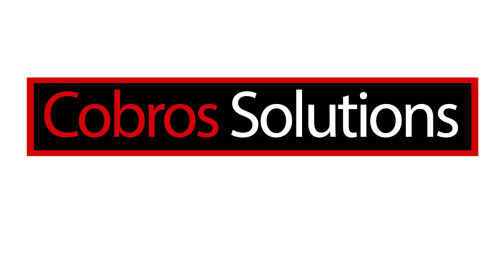Best Creditor Lawyers in Dominican Republic
Share your needs with us, get contacted by law firms.
Free. Takes 2 min.
Or refine your search by selecting a city:
List of the best lawyers in Dominican Republic
About Creditor Law in Dominican Republic
Creditor law in the Dominican Republic encompasses the legal framework governing the rights and responsibilities of creditors seeking to collect debts. This area of law includes the processes for debt collection, protection of creditor rights, and the enforcement of claims against debtors. The legal system in the Dominican Republic provides specific mechanisms for creditors to recover amounts owed, including the availability of court proceedings to claim unpaid debts.
Why You May Need a Lawyer
There are numerous situations where individuals and businesses might require legal assistance in dealing with creditor-related issues. Common scenarios include difficulties in collecting outstanding debts, disputes regarding the terms of a credit agreement, and negotiating settlements with debtors. A lawyer can provide essential guidance on the legal options available, help in drafting and reviewing contracts, and represent clients in court to ensure their rights as creditors are upheld.
Local Laws Overview
Creditor laws in the Dominican Republic are primarily governed by the Code of Civil Procedure, which outlines the procedures for filing claims and collecting debts. Key aspects include the requirement for creditors to establish the existence of a debt through documentation, the use of pre-emptive measures to secure assets, and the possibility of initiating foreclosure proceedings in case of secured debt. Additionally, creditors must adhere to certain legal standards and practices to avoid violating debtor rights.
Frequently Asked Questions
What is the process for collecting a debt in the Dominican Republic?
The process typically begins with a demand letter to the debtor, followed by negotiation. If unsuccessful, a creditor can file a claim in court to obtain a payment order or judgment.
Can a creditor seize a debtor's assets?
Yes, if granted by the court, a creditor can seize a debtor's assets as part of an enforcement action, especially in cases where there is a risk of asset dissipation.
Are there any specific protections for debtors in these proceedings?
Debtors have the right to due process, which includes receiving notification of the claim and having the opportunity to contest it in court.
How long does it typically take to resolve a creditor lawsuit?
The timeframe varies depending on the complexity of the case and the court's schedule, but it generally ranges from several months to over a year.
What documentation is required to prove a debt in court?
Creditors need to provide concrete evidence, such as contracts, invoices, and communications, that clearly establish the existence and terms of the debt.
Can creditors charge interest on overdue payments?
Yes, creditors can charge interest on overdue payments if it is stipulated in the contract or agreement, subject to statutory limitations.
Is it possible to negotiate a debt settlement out of court?
Yes, parties can negotiate settlements outside of court to reach mutually acceptable terms, often with the assistance of legal counsel for both sides.
What happens if a debtor declares bankruptcy?
If a debtor enters bankruptcy, creditor claims will be subject to the bankruptcy proceedings, which may lead to partial or no recovery, depending on the debtor's assets and the priority of claims.
Can a foreign creditor enforce a debt in the Dominican Republic?
Yes, a foreign creditor can enforce a debt, but must comply with Dominican legal procedures and may require assistance from local legal counsel.
What are the consequences for a debtor who fails to comply with a court order?
A debtor who fails to comply with a court order may face enforcement actions, additional legal penalties, and potentially contempt of court charges.
Additional Resources
Individuals seeking assistance with creditor issues in the Dominican Republic can consult local legal firms with expertise in creditor and debtor law. Additionally, the Dominican Republic's judiciary and the Attorney General's Office might provide relevant information and guidance on legal procedures.
Next Steps
If you require legal assistance with creditor-related matters in the Dominican Republic, consider reaching out to a qualified lawyer who specializes in this field. Gather all relevant documentation pertaining to your case and arrange a consultation to discuss your situation, explore your legal options, and receive personalized guidance on the best course of action.
Lawzana helps you find the best lawyers and law firms in Dominican Republic through a curated and pre-screened list of qualified legal professionals. Our platform offers rankings and detailed profiles of attorneys and law firms, allowing you to compare based on practice areas, including Creditor, experience, and client feedback.
Each profile includes a description of the firm's areas of practice, client reviews, team members and partners, year of establishment, spoken languages, office locations, contact information, social media presence, and any published articles or resources. Most firms on our platform speak English and are experienced in both local and international legal matters.
Get a quote from top-rated law firms in Dominican Republic — quickly, securely, and without unnecessary hassle.
Disclaimer:
The information provided on this page is for general informational purposes only and does not constitute legal advice. While we strive to ensure the accuracy and relevance of the content, legal information may change over time, and interpretations of the law can vary. You should always consult with a qualified legal professional for advice specific to your situation.
We disclaim all liability for actions taken or not taken based on the content of this page. If you believe any information is incorrect or outdated, please contact us, and we will review and update it where appropriate.
Browse creditor law firms by city in Dominican Republic
Refine your search by selecting a city.













